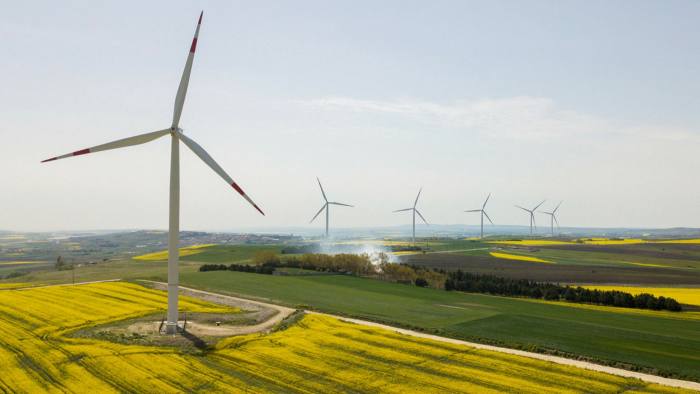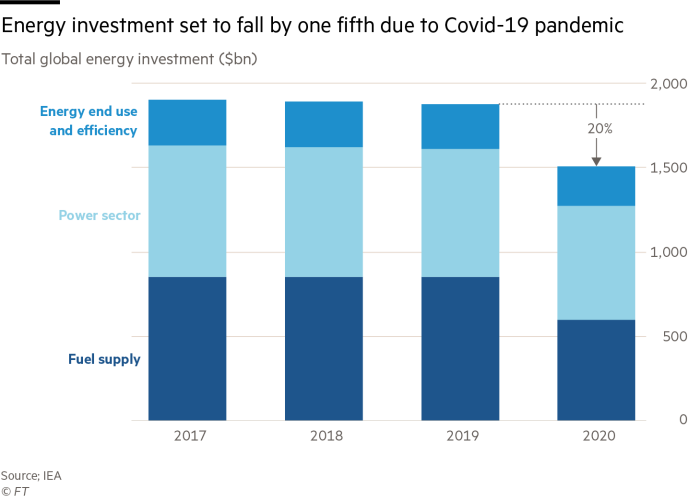
Global energy spending to fall $400bn due to coronavirus crisis
IEA says investments in low-carbon technologies falling far short of climate goals
by Anjli RavalThe coronavirus pandemic will slash energy sector investment by about $400bn this year — the biggest ever annual fall — with the International Energy Agency warning that the world could grow more dependent on cheaper, dirtier fuels that undermine global climate goals.
Spending is due to plunge in every major sector, from oil, gas and coal to renewables, the Paris-based body said in a report published on Wednesday that takes into account project data and announcements from governments and companies.
At the start of 2020, global energy investment was set to grow 2 per cent, marking the largest annual rise in six years. But with governments around the world forced to lock down their economies and halt travel to slow the pandemic, spending will fall 20 per cent compared with 2019 levels.
Global energy investment in 2020 will be just over $1.5tn compared with just under $1.9tn in 2019, the IEA said.
“This Covid crisis will lead to the biggest fall of global energy investment in history. We have never seen such a big decline,” Fatih Birol, head of the IEA, told the Financial Times. “The entire system has been hit”.
Recommended
Coronavirus: free to read
Coronavirus tracked: has the epidemic peaked near you?
The finances of hydrocarbon-rich governments have taken a massive hit as demand has collapsed. The balance sheets of oil and gas companies have also weakened dramatically, prompting them to cut back on investments.
Although spending in the renewables sector is set to be more resilient than for fossil fuels in the current downturn, it is not completely immune to the fallout from the pandemic.
As crude prices have fallen to 18-year lows in recent weeks, national oil companies and internationally listed energy majors slashed capital spending. Oil and gas investment is expected to drop almost a third in 2020, with the US shale sector taking the biggest hit.
Coal will fall 15 per cent while power sector spending — which includes renewable generation, investment in grids and storage — will slide 10 per cent. Money funnelled into energy efficiency will fall 12 per cent.

Mr Birol said while cleaner energy projects were performing relatively better, spending had been flat since 2015 and was far below the levels necessary to bring about a meaningful reduction in emissions in line with the Paris climate goals.
“My key concern is that the lockdowns may lead to a lock-in of inefficient [and dirtier] technologies in financially constrained emerging markets, which will have serious implications for global energy and climate trends,” he said.
Renewable power capacity additions will be lower than 2019 as project completions are delayed into next year and approvals for new investments of utility-scale wind and solar projects slows to three-year lows.

But approvals of new coal plants in the first quarter of 2020, mainly in China, were running at twice the rate observed over 2019 as a whole. “It’s because it’s very cheap,” said Mr Birol. “The findings are deeply troubling.”
Before the crisis, “the flow of energy investments was misaligned in many ways with the world’s future needs,” the IEA report said. Market and policy signals were not prompting a widespread reallocation of capital to cleaner energy projects.
The IEA said while the crisis presented an opportunity to readdress the energy mix, it also had “the potential to exacerbate these mismatches and take the world further away from achieving its sustainable development goals”.